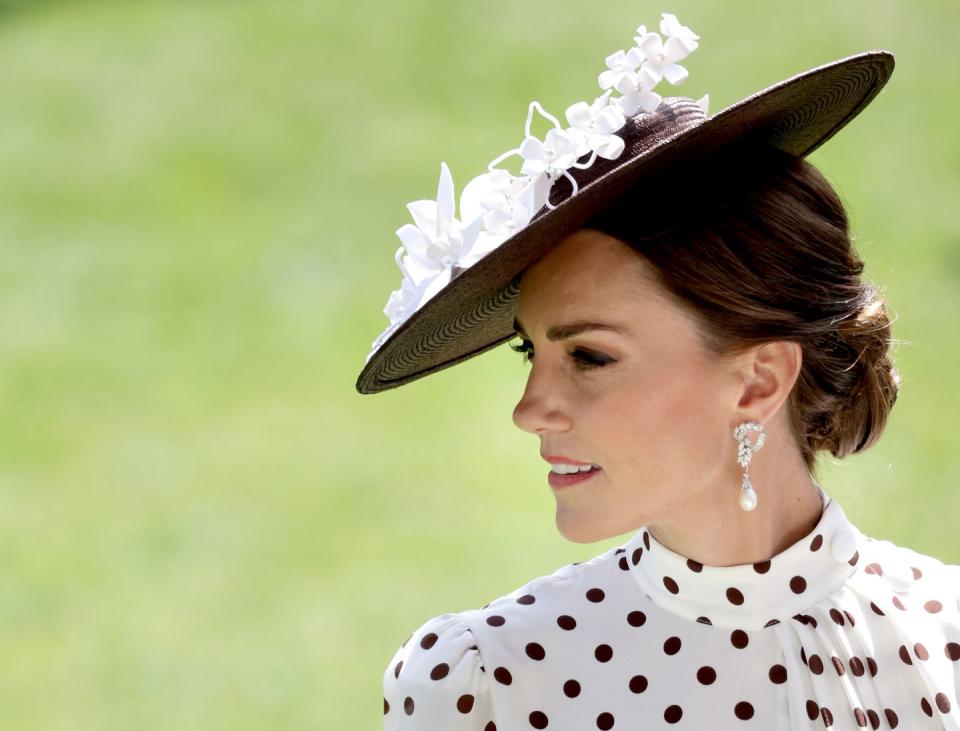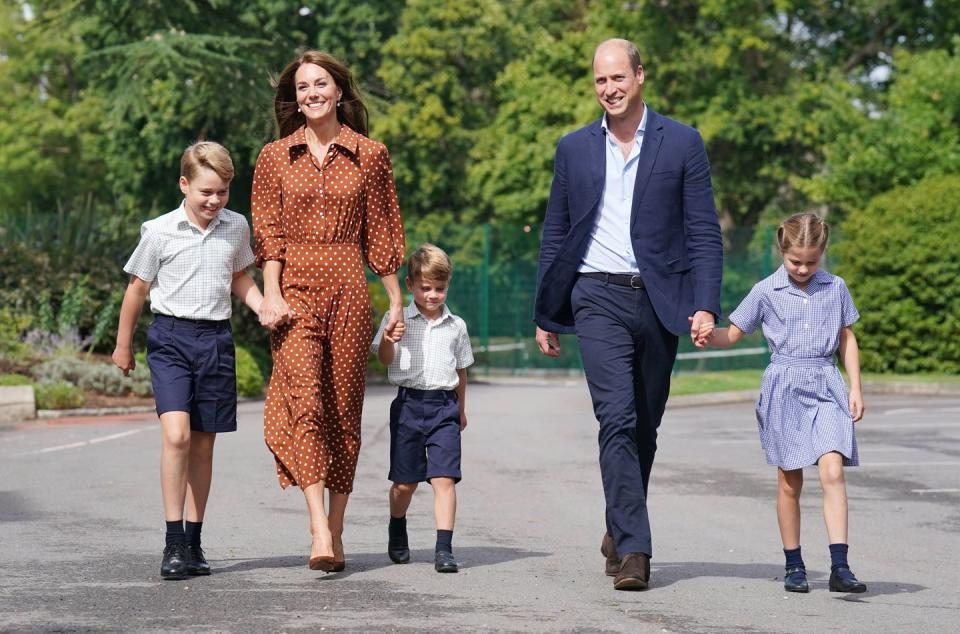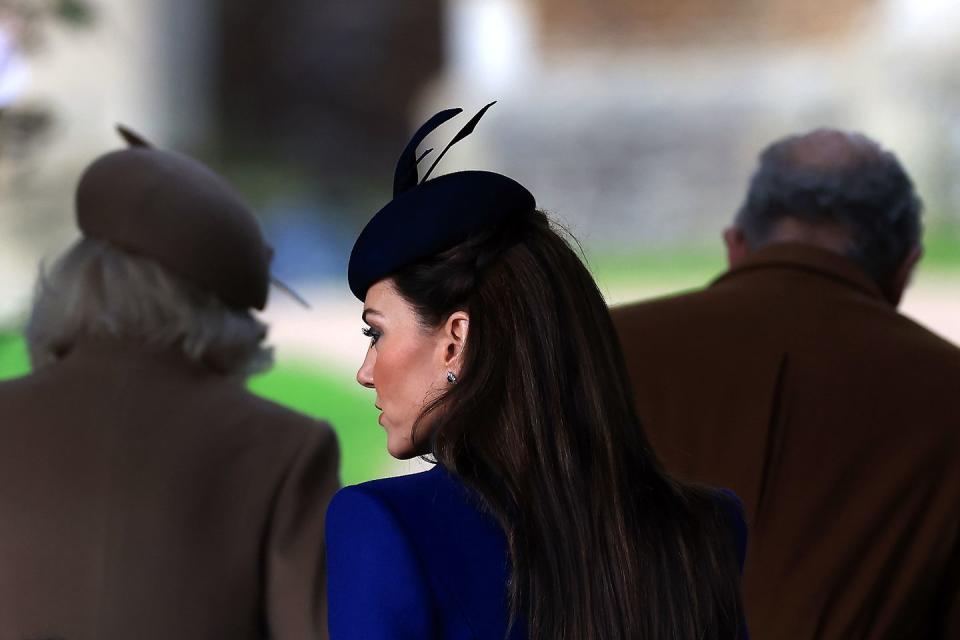Why Is the British Media Not Reporting What Is Wrong With Kate Middleton?
It has been almost two months since Kensington Palace shocked the world by announcing that Kate Middleton would be unable to perform duties for months following abdominal surgery. After the initial explosion of news, a relative calm temporarily descended around the subject due to the lack of information and updates. But the past week has seen speculation reach fever pitch and conspiracy theories dominate social media, leading to a further resurgence of coverage.
One of the things that I have been asked recently is why the British media is not reporting what is wrong with the Princess of Wales. The question has surprised me, but there are those who seem convinced that members of the media have been officially told more than they are writing or saying. And there are others who appear confused by the hands-off approach to discussing her medical situation.
Addressing the former point first: There is no specific media blackout on this. That kind of agreement between the media and the Palace is actually very rare. A good example of it is when Prince Harry served his first tour of Afghanistan in 2007 and 2008. Editors were told about his deployment and agreed not to publish this information. In the end, Australian Women’s magazine, New Day, which was not party to the media blackout, got hold of the news and published it. They later apologized.
Embargoes of a few hours or days on royal stories and royal engagements are very common, and are usually either to do with security or out of consideration for what timings will work well for media. But a media blackout is not something that happens much at all, and has not happened in this situation. If journalists do have additional information about Kate’s hospitalization, then it is not in an official capacity from Kensington Palace. But, whatever an individual journalist might know, it is highly unlikely that anything other than what has been said by Kensington Palace would make its way into print or broadcast anyway.

This is because of my second point, which is media law and ethics. All credible media organizations in the UK abide by strict legal and ethical codes.
Privacy is protected by UK law under the Human Rights Act 1998, which states that, “Everyone has the right to respect for his private and family life, his home and his correspondence.” An individual’s right to privacy is also enshrined in the codes of practice which regulate the print and broadcast industries.
However, infringements on privacy can sometimes be justified in law if the information is ruled to be in the public interest (which is not the same thing as what the public is interested in). If a privacy case is brought before the courts and regulators, they will also consider things like what a reasonable expectation of privacy is, to what extent the information is already in the public domain as well as the complainant’s own public disclosures. Also balancing this, freedom of expression is enshrined in UK law, protecting the right to criticize government or public institutions without fear of prosecution.
Despite the bashing that sections of the British media (notably the tabloids) often get largely thanks to a culture of past wrongdoing, today, mainstream media takes these laws and regulations seriously. Newspaper and magazine regulator Independent Press Standards Organisation (IPSO) was set up in 2014 after the previous regulator closed in the wake of the phone hacking scandal. The Guardian newspaper described the change as “a clean break from the past and an opportunity to regain the confidence of the public.”

In stark contrast to the Princess Diana era, you rarely see unsolicited images of the royal family off duty today. When photographers are asked to stay away from trying to capture private moments, not only do they know that there could be legal repercussions from ignoring this, they also know that there is a limited market for these images as the vast majority of UK publications just won’t go near them. A classic example of this was the recent image of Kate taken by a paparazzi, which was published by some outlets in the U.S. and circulated on social media, but did not feature in British newspapers or broadcast.
Even in recent years, however, there have been several times when UK publications have been found wanting on privacy issues to do with the royals. In 2006, then Prince Charles won a legal victory after it was ruled that the Mail on Sunday had infringed his privacy and copyright when they published parts of his diary. In 2016, Kate won a complaint via IPSO after the Express and OK! magazine websites published a picture of Prince George. And in 2022, Meghan Markle won a privacy and copyright case against the Mail on Sunday after they published her letter to her father.
When it comes to a person’s medical information, IPSO’s code has a specific clause, which emphasizes the importance of privacy here. “The restrictions on intruding into privacy are particularly relevant to enquiries about individuals in hospitals or similar institutions,” it states. There is no expectation in the UK that members of the royal family will disclose details of any medical conditions, and there has been a history of both being open and deciding to keep things private over the years.

When Kensington Palace put out their initial statement about Kate’s hospitalization on January 17 they left no doubt about that her position was, “that her personal medical information remain private.” A further note to journalists reiterated a request for privacy for the family. It’s difficult to see how any journalist could justify making enquiries about her condition via any route such as hospitals or family or friends after a request like that.
One interesting thing about the media landscape today is that while mainstream media is restrained, the internet and social media allows for a totally unregulated environment which fills any kind of vacuum in knowledge with speculation and conjecture. Occasionally, as we have seen last week, this can feed back into mainstream reporting when it becomes so rife or outlandish that the fact it is happening then becomes a news story in itself.
In recent days there has been much coverage and discussion around the intense online speculation regarding Kate, leading some media outlets to question the Palace’s decision to remain silent. Good Morning Britain asked, “Should the Palace explain Kate’s illness?” And a BBC report pointed out “a thickening fog of uncertainties” which “gives more energy to online rumours.” However, T&C understands that there are no plans for the Palace's position on updates to change. The next we are likely to hear from them will be much closer to the time that was originally set out for Kate to return to royal duties—which is not until after Easter.
You Might Also Like


